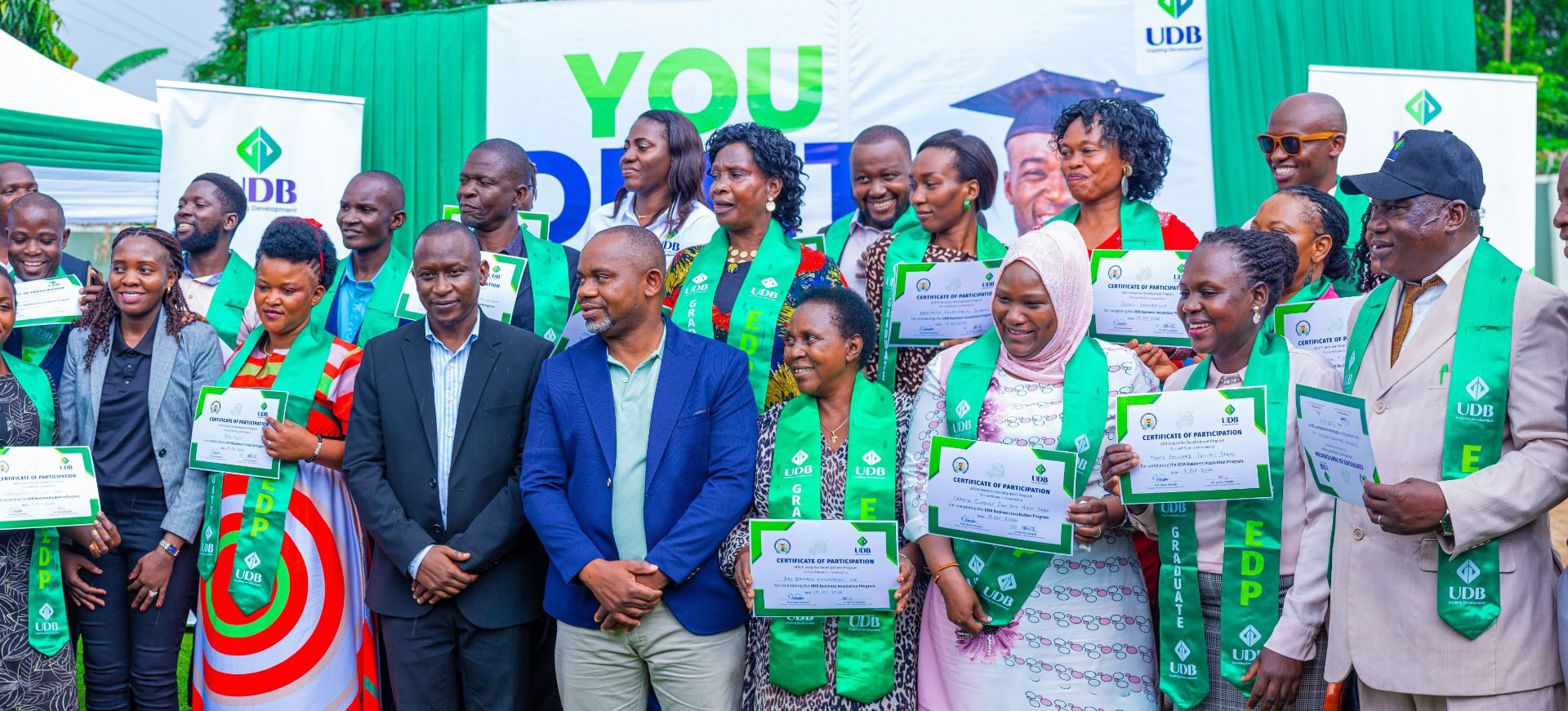Uganda Development Bank Ltd (UDB), through its Enterprise Development Programme (EDP), has graduated the Mbale cohort of Small and Medium Enterprises (SMEs), equipping them with skills and knowledge to become investor-ready.
The programme offers practical training and advisory services using a hybrid model in partnership with Makerere University Business School’s Entrepreneurship, Innovation and Incubation Centre (MUBS-EIIC).
In the Mbale Cohort 2025, 32 enterprises were incubated, and 28 successfully graduated after completing the intensive training. The enterprises came from primary agriculture, manufacturing, agro-processing, education, health, tourism, and ICT sectors, reflecting the diversity and potential of Uganda’s SME ecosystem.
Participants underwent a two-month training course under the EDP and received certificates upon completion.
Recommended For YouBusinessDomestic2025-10-17T09:42:17+00:00
Networking Ugandan-style: How relationships drive career growth
Networking is not just about exchanging business cards or attending events BusinessDomestic2025-10-15T09:48:35+00:00
BusinessDomestic2025-10-15T09:48:35+00:00
Ugandan PR leader Irene Nakasiita appointed to world forum advisory committee
The WPRF, a flagship global event for communication leaders, is scheduled to be hosted in Abuja, Nigeria, in 2026. BusinessDomestic2025-10-17T09:56:39+00:00
BusinessDomestic2025-10-17T09:56:39+00:00
How structured compliance can open opportunities for local content creators
Structured regulatory compliance addresses the systematic adherence to legal and regulatory standards governing content creation, distribution and monetization.
The programme aims to equip and nurture private enterprises through targeted training and mentorship to enhance their capacity and readiness to access financing from UDB and other financial institutions.
ADVERTISEMENT
To date, 275 SMEs have been incubated in earlier cohorts held in Kampala, Gulu, and Arua.
This year, the Bank plans to hold similar regional training sessions in Lira, Mbarara, Fort Portal, and Masaka to strengthen enterprise capacity across the country.
Dr Francis Mwesigye, Director of Economic Research and Knowledge Management/Chief Economist at UDB
“The SME sector is the engine that drives growth in our economy, which is why we focus on empowering it,” said Dr Francis Mwesigye, Director of Economic Research and Knowledge Management/Chief Economist at UDB, during the graduation ceremony in Mbale.
“Through this flagship non-financial intervention, we equip entrepreneurs with practical knowledge and tools to start, strengthen, and scale their businesses. The programme also positions participants to access UDB’s tailored financial solutions and thrive in today’s competitive market.”
ADVERTISEMENT
Dr Mwesigye noted that SMEs make up 90% of Uganda’s private sector and contribute about 80% of manufacturing output, employing over 2.5 million people.
However, only about 30% survive beyond their third year.
“This highlights the sustainability challenges faced by many Ugandan enterprises. As a development bank, we are addressing these issues by helping entrepreneurs build resilient and sustainable businesses, in line with our mandate to improve the quality of life for Ugandans,” he said.
One beneficiary testified to the programme’s impact.
“Before joining the EDP, I operated informally. My business was unregistered, and I lacked proper records. Since completing the training, I now run my business efficiently. I have a business proposal, organised records, pay taxes, and see the benefits of professional management,” said Richard Magola, Proprietor of Richie Hotels and Safaris.
ADVERTISEMENT
The EDP provides essential skills in management, corporate governance, record-keeping, risk management, marketing, human resources, and financial management.
This approach helps participants navigate market challenges and attract investment for growth.
The training draws on UDB’s experience in funding, implementing, and monitoring business projects.
The programme is run in partnership with the Uganda Registration Services Bureau (URSB), Uganda National Bureau of Standards (UNBS), Uganda Revenue Authority (URA), Uganda Investment Authority (UIA), National Social Security Fund (NSSF), and Uganda Women Entrepreneurs’ Association Limited (UWEAL).


